Английский язык для специальных и академических целей: Международные отношения и зарубежное регионоведение. Часть 1 - [78]
However, in the end, a convergence of interests between Russia and the U.S. emerged. As Obama faced the prospect of being compelled to intervene militarily — an extremely unattractive prospect — Russia offered a way out; securing the commitment of the Syrian regime to dismantle all of its chemical weapons.
Having engineered this diplomatic coup, Russia then made sure it was true to its word and, a year later, almost all of Syria's chemical weapons have been destroyed. The Russian leadership was also careful not to use this diplomatic gain to ‘humiliate' the U.S. This restraint meant that there was a chance that this could have been the foundation for a pragmatic improvement in relations between the two countries.
The crisis in Ukraine extinguished any such hopes. Hawks on both sides have heralded a return to Cold War confrontation and zero-sum competition. Both countries have seen in Ukraine the crossing of ‘red lines' that cannot be accepted.
The red line for Russia was the move toward the U.S. and the imposition of a pro-Western ‘democracy' in a country directly neighboring Russia. For the U.S., the Russian annexation of Crimea undermined the post-Cold War European agreement to respect the new European territorial boundaries.
The Reader
The question is, thus, whether the current state of U.S.-Russian relations is at such a depressed and destructive level that no real cooperation is possible, even in other less politically contested regions of the world. Clearly, the answer to this question depends significantly on what happens in Ukraine.
The resolve to impose a cease-fire on the pro-Russian rebels in Ukraine suggests that President Vladimir Putin might not see escalation as the only way to resolve the crisis in Ukraine in Russia's favor. The historic record of Putin's period at the apex of Russian power has been a pattern of oscillation between an ambition for improving relations with the West and a subsequent disillusionment and deterioration in such relations, leading again to an attempted renewal or ‘resetting' of those relations.
It cannot be excluded that the cycles might move again and U.S.-Russian relations will start to be mended by the cease-fire in Ukraine.
In this scenario, the Middle East actually offers many areas for mutual cooperation. It is not like the Cold War period when the U.S. and Soviet Union ritualistically supported different camps in the region.
Nowadays, the U.S. and Russia have a common strategic interest in combatting international terrorism, the reason being that this represents a serious threats to the citizens of both countries, as seen in the recent threats from IS to Russia following those to the U.S.
While the US suffered from the terrorist attacks of 9/11, Russia has had to endure numerous terrorist attacks, mainly emanating from the Islamist insurgency in the North Caucasus. For both countries, there is a shared sense of the gravity of the threat of international terrorism to their core national interests.
For these reasons, the U.S. and Russia view IS as a common enemy. As the apocalyptic language emanating out of Washington demonstrates, the U.S. actually views the threat from IS as strategically more important than that of Ukraine in the sense that direct national interests are involved.
For the American public, Ukraine appears as an obscure conflict in a distant land, while the execution of American journalist James Foley by IS has a shocking immediacy. If the conflict in Iraq and Syria escalates, and the U.S. becomes more involved, it might very well be that the Ukrainian conflict becomes marginalized. And any Russian support in the battle against IS, undoubtedly of a more indirect nature, would be welcomed by Washington.
If one looks at the Middle East more broadly, Russian and U.S. interests are actually closer than often suggested. Although there has been continued disagreement about Iran, both Russia and the U.S. are committed to seeing that Iran does not obtain nuclear weapons and the U.S. posture toward Iran has moved closer to that of Russia.
With the escalation of the crisis in Iraq, Russia can potentially play an important role in facilitating the coordination between Iran, the Iraqi government and Syria, which will be critical if IS is to be defeated.
Russia is also no longer the unconditional supporter for radical forces in the Middle East. Russia's major economic partners in the region are Turkey and Israel, and the economic and cultural links between Russia and Israel have never been stronger.
In fact, it could be argued that it is Russia which is the more conservative force supporting the regional status quo, while it is the U.S. which is the more radical actor seeking to overturn the regional order. Obama's much more realist and non-interventionist convictions actually represent a shift toward the Russian position.
There is, therefore, considerable potential for Russia and the U.S. to work together in the Middle East. However, this is clearly conditional on no further escalation in Ukraine. In that context, the likelihood is for conflict and confrontation to extend to other parts of the world, including the Middle East, even when in practice there is such mutual interest for cooperation.
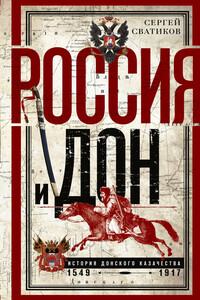
Предлагаем вашему вниманию адаптированную на современный язык уникальную монографию российского историка Сергея Григорьевича Сватикова. Книга посвящена донскому казачеству и является интересным исследованием гражданской и социально-политической истории Дона. В работе было использовано издание 1924 года, выпущенное Донской Исторической комиссией. Сватиков изучил колоссальное количество монографий, общих трудов, статей и различных материалов, которые до него в отношении Дона не были проработаны. История казачества представляет громадный интерес как ценный опыт разрешения самим народом вековых задач построения жизни на началах свободы и равенства.
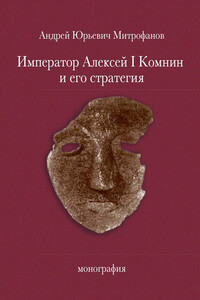
Монография доктора исторических наук Андрея Юрьевича Митрофанова рассматривает военно-политическую обстановку, сложившуюся вокруг византийской империи накануне захвата власти Алексеем Комнином в 1081 году, и исследует основные военные кампании этого императора, тактику и вооружение его армии. выводы относительно характера военно-политической стратегии Алексея Комнина автор делает, опираясь на известный памятник византийской исторической литературы – «Алексиаду» Анны Комниной, а также «Анналы» Иоанна Зонары, «Стратегикон» Катакалона Кекавмена, латинские и сельджукские исторические сочинения. В работе приводятся новые доказательства монгольского происхождения династии великих Сельджукидов и новые аргументы в пользу радикального изменения тактики варяжской гвардии в эпоху Алексея Комнина, рассматриваются процессы вестернизации византийской армии накануне Первого Крестового похода.
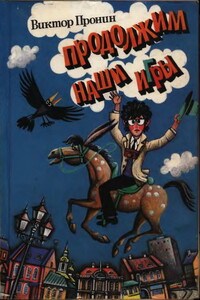
Виктор Пронин пишет о героях, которые решают острые нравственные проблемы. В конфликтных ситуациях им приходится делать выбор между добром и злом, отстаивать свои убеждения или изменять им — тогда человек неизбежно теряет многое.
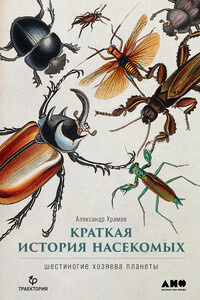
«Любая история, в том числе история развития жизни на Земле, – это замысловатое переплетение причин и следствий. Убери что-то одно, и все остальное изменится до неузнаваемости» – с этих слов и знаменитого примера с бабочкой из рассказа Рэя Брэдбери палеоэнтомолог Александр Храмов начинает свой удивительный рассказ о шестиногих хозяевах планеты. Мы отмахиваемся от мух и комаров, сражаемся с тараканами, обходим стороной муравейники, что уж говорить о вшах! Только не будь вшей, человек остался бы волосатым, как шимпанзе.
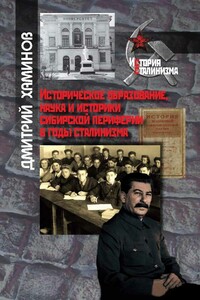
Настоящая монография посвящена изучению системы исторического образования и исторической науки в рамках сибирского научно-образовательного комплекса второй половины 1920-х – первой половины 1950-х гг. Период сталинизма в истории нашей страны характеризуется определенной дихотомией. С одной стороны, это время диктатуры коммунистической партии во всех сферах жизни советского общества, политических репрессий и идеологических кампаний. С другой стороны, именно в эти годы были заложены базовые институциональные основы развития исторического образования, исторической науки, принципов взаимоотношения исторического сообщества с государством, которые определили это развитие на десятилетия вперед, в том числе сохранившись во многих чертах и до сегодняшнего времени.

Эксперты пророчат, что следующие 50 лет будут определяться взаимоотношениями людей и технологий. Грядущие изобретения, несомненно, изменят нашу жизнь, вопрос состоит в том, до какой степени? Чего мы ждем от новых технологий и что хотим получить с их помощью? Как они изменят сферу медиа, экономику, здравоохранение, образование и нашу повседневную жизнь в целом? Ричард Уотсон призывает задуматься о современном обществе и представить, какой мир мы хотим создать в будущем. Он доступно и интересно исследует возможное влияние технологий на все сферы нашей жизни.